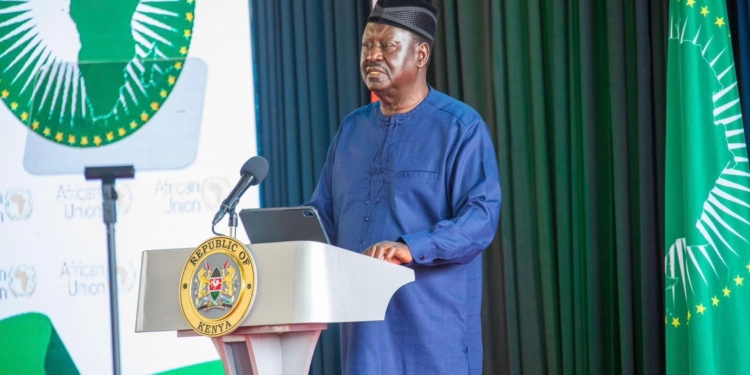Contents
- 1 AUC Chairmanship Election Overview: The Addis Ababa Showdown
- 2 The Voting Rounds: From Early Promise to Eventual Setback
- 2.1 Round One: A Promising Start
- 2.2 Round Two: Momentum and Continued Support
- 2.3 RelatedPosts
- 2.4 Unmasking the Killers: BBC Africa Eye’s ‘Blood Parliament’ Exposes Fatal Shootings During Kenya Finance Bill Protests
- 2.5 Pope Francis’ Legacy: A Pope for the Poor, the Marginalized, and Global Unity
- 2.6 Trump – Zelensky Spat: Is the Age of Modest Pretense Gone?
- 2.7 Round Three: The Turning Point
- 2.8 Rounds 4–7: The Final Push to Victory
- 3 Kenyan Government’s Support for Raila Odinga’s AUC Bid: A Double-Edged Sword
- 4 Gen Z’s Criticism: Betrayal or a Question of Pragmatism?
- 5 Raila Odinga’s Loss at the AUC and Its Implications for Kenya and the African Union
- 6 Concluding Thoughts: A Moment of Reckoning
In a stunning turn of events at the African Union Commission (AUC) Chairperson elections in Addis Ababa, Ethiopia, Kenya’s prominent political figure Raila Odinga suffered a decisive defeat. Once hailed as a transformative leader in Kenyan politics, Odinga’s loss marks a significant shift not only in continental power dynamics but also in the domestic political narrative, particularly among Kenya’s youthful generation. This article delves into the unfolding events at the AUC election, the intricate voting rounds, the role of the Kenyan government in backing his candidacy, and the resulting generational backlash that has left many questioning his political allegiances.
AUC Chairmanship Election Overview: The Addis Ababa Showdown
The high-stakes AUC Chairperson election was held under the watchful eyes of member states in Addis Ababa, Ethiopia. Raila Odinga, a former Prime Minister of Kenya and long-time opposition stalwart, initially showed great promise in this contest. The election unfolded over several rounds of voting, with Odinga’s early successes quickly turning into a political quandary. Despite a promising start, his campaign was eventually overtaken by Djibouti’s candidate, Mahamoud Ali Youssouf, in the later rounds of voting.
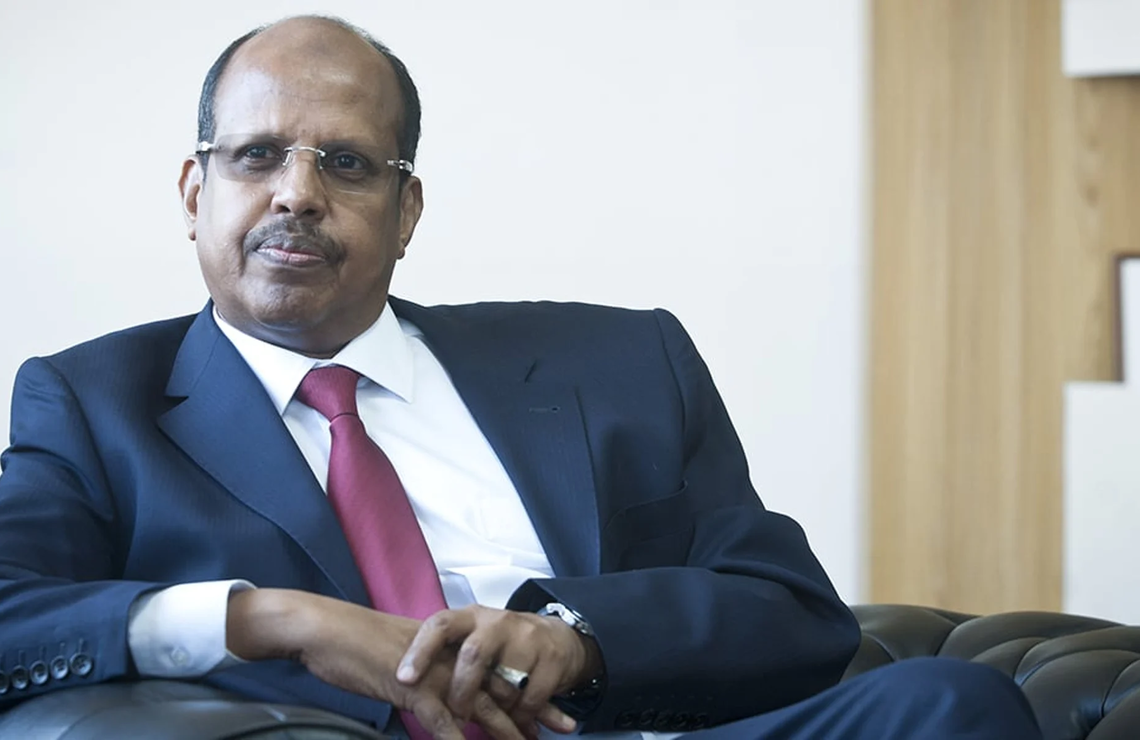
The election was structured over multiple rounds:
- Round One: Odinga secured 20 votes, narrowly outpacing Mahamoud’s 18, while Madagascar’s Richard Randriamandrato received 10 votes. One nation abstained from voting.
- Round Two: Odinga increased his tally to 22 votes, with Mahamoud garnering 19 and Randriamandrato falling to 7 votes, again with one abstention.
- Round Three: A dramatic shift occurred as Odinga’s vote count dropped to 20 while Mahamoud surged ahead with 23 votes. With Randriamandrato reduced to 5 votes and subsequently eliminated, the race boiled down to a head-to-head contest between Odinga and Mahamoud.
This sequence of events not only underscores the volatile nature of continental elections but also highlights the fragile support base that even a seasoned politician like Odinga can face on the international stage.
The Voting Rounds: From Early Promise to Eventual Setback
Round One: A Promising Start
In the opening round of the election, there was palpable optimism surrounding Raila Odinga’s candidacy. His performance—garnering 20 votes against Mahamoud’s 18—set the tone for what appeared to be a highly competitive race. This initial success was seen as an endorsement of his leadership and vision for the African Union, promising a new era of reform and unity.
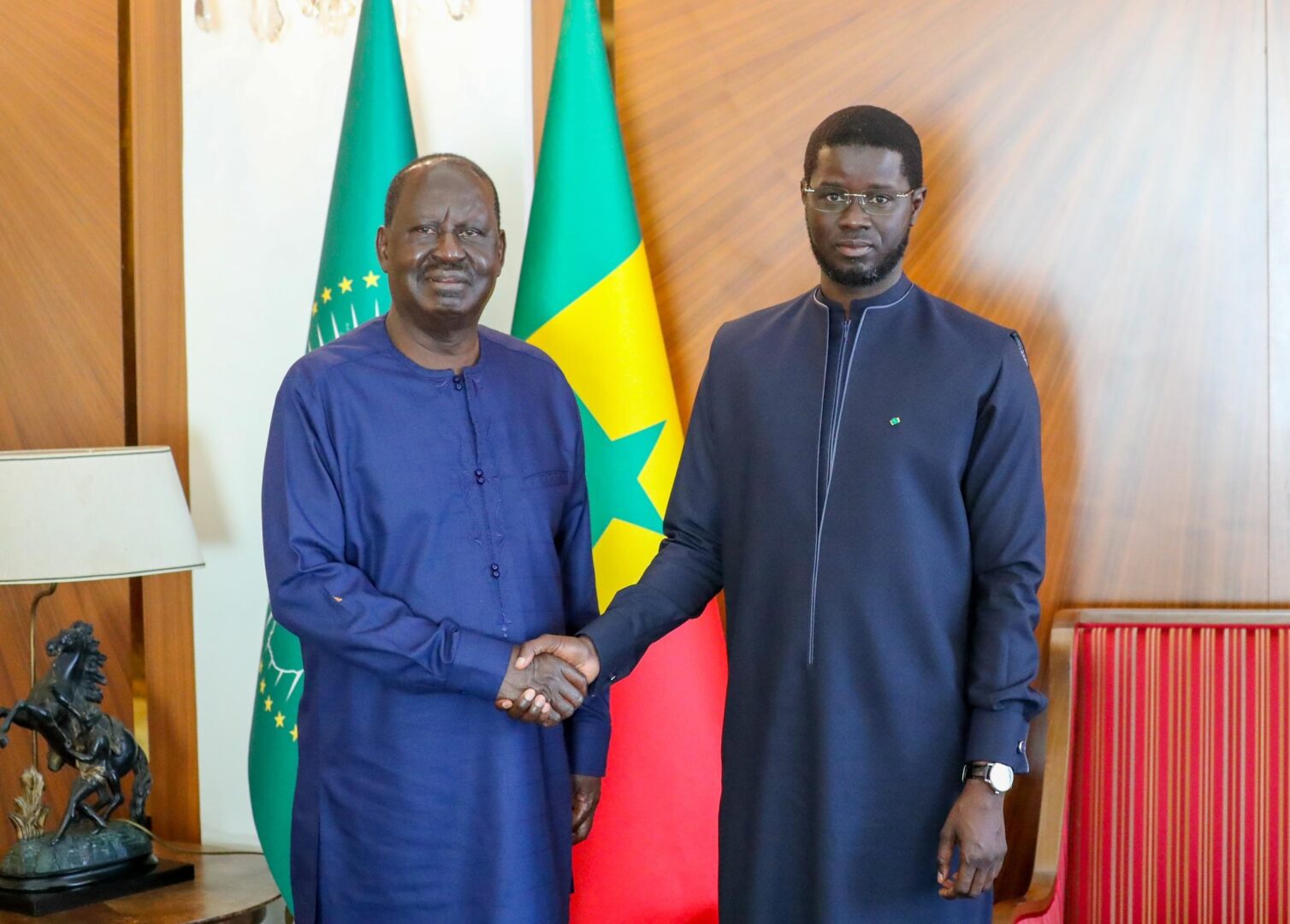
Round Two: Momentum and Continued Support
The second round saw Odinga building on his early success, amassing 22 votes. Although Mahamoud’s 19 votes signified a strong opposition presence, the race was still perceived as leaning in Odinga’s favor. The support from various member states reflected a belief in his capabilities and the potential for a more integrated African Union under his leadership.
Round Three: The Turning Point
However, the momentum shifted dramatically in the third round. Odinga’s vote count fell to 20, while Mahamoud’s count rose to 23—a decisive change that spelled the beginning of the end for the Kenyan candidate’s aspirations. The elimination of Richard Randriamandrato further intensified the head-to-head battle, leaving Odinga to face a formidable challenge from Mahamoud. This sudden reversal not only shocked observers but also signaled a broader skepticism about Odinga’s agenda among several AU member states.
Rounds 4–7: The Final Push to Victory
As the election progressed beyond the initial rounds, Mahamoud Ali Youssouf steadily consolidated his lead over Raila Odinga. In round four, Youssouf improved his tally to 25 votes against Raila’s 21—with one vote spoiled and one nation abstaining—cementing his growing advantage. The momentum continued in round five, where Youssouf’s support increased to 26 votes while Raila remained at 21, again with one nation choosing not to vote.
In the sixth round, the figures were nearly identical, with Youssouf securing 26 votes and Raila 22, prompting Raila’s eventual withdrawal from the contest. The decisive seventh round saw Youssouf, now unchallenged, clinch the position by garnering the required two-thirds majority of 33 votes, thereby sealing his victory and positioning him to succeed outgoing Chair Moussa Faki of Chad.
Kenyan Government’s Support for Raila Odinga’s AUC Bid: A Double-Edged Sword
Back home in Kenya, the political landscape was abuzz with discussions over Odinga’s candidacy. His bid for the #AUC chairmanship had been strongly supported by the Kenyan government—a strategic move that had its roots in the formation of a “broad-based” government with President William Ruto. This alliance, intended to foster national unity and consolidate political power, was portrayed by government officials as a pragmatic step towards addressing Kenya’s longstanding challenges.
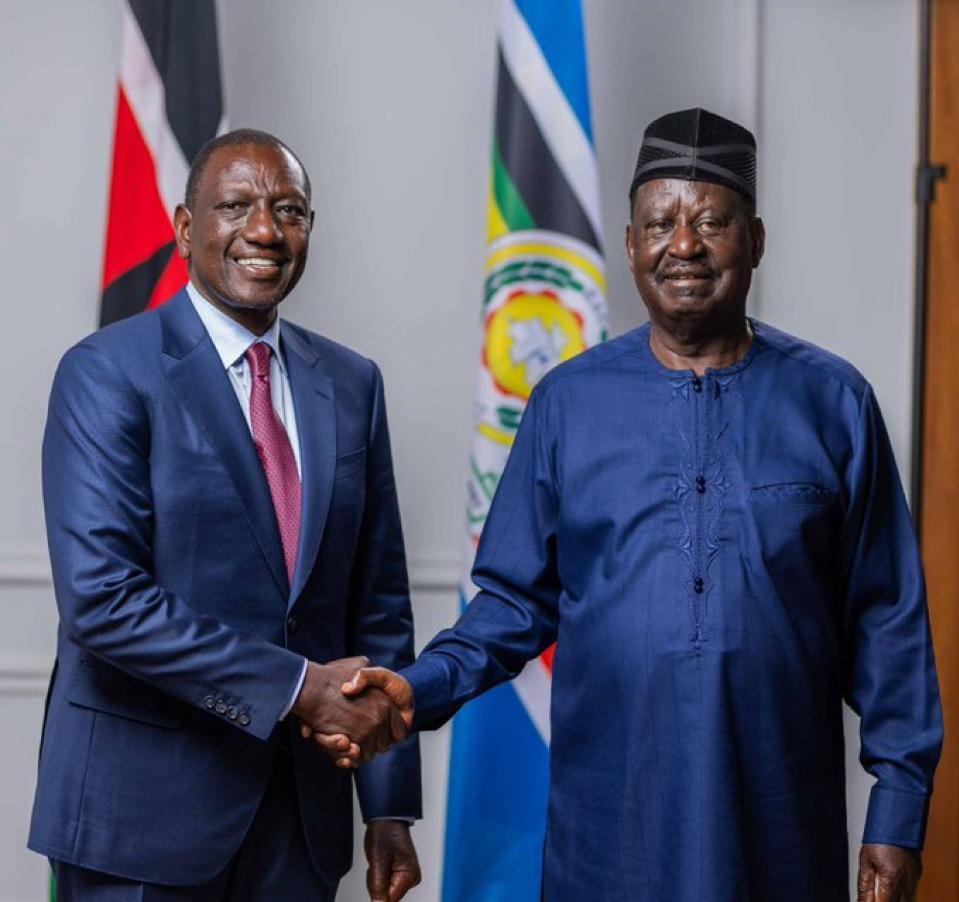
The support from Kenya’s establishment was seen as a vote of confidence in Odinga’s ability to represent not just his nation but the broader interests of Africa. However, this very backing would later become a point of contention. Many observers argued that Odinga’s close ties with the current government compromised his independence and diluted the transformative change that many had come to expect from him.
Related: Kenya’s High-Stakes Gamble: Will Raila Odinga Succeed in the AU Chair Race?
The Broad-Based Government and Its Controversial Legacy
The formation of a “broad-based” government involving Raila Odinga and President Ruto was intended as a bold experiment in political inclusivity. Proponents argued that this coalition would bridge deep-seated divisions and propel Kenya into a new era of development and stability. Yet, the reality on the ground was more complex. While the alliance managed to secure crucial institutional support, it also alienated significant segments of the population who had long championed Odinga’s role as a revolutionary change-maker.
For many, particularly among the younger generation, the collaboration with Ruto’s establishment was seen as a betrayal. The youthful segment of the electorate— often referred to as #GenZ —viewed the move as siding with what they perceived as an oppressive system. They believed that Odinga’s acceptance of government backing compromised his integrity and diluted his commitment to progressive, grassroots-driven change. This generational divide has since become a central narrative in Kenyan political discourse.
Gen Z’s Criticism: Betrayal or a Question of Pragmatism?
A Clash of Ideologies
The discontent among Gen Z voters centers on a perception of betrayal. For years, Raila Odinga had been viewed as a champion of change, someone who could disrupt the entrenched political order and offer a more equitable future. His alliance with President Ruto, however, painted him in a different light. Many young Kenyans felt that by aligning himself with the government, Odinga was compromising the very ideals he had once fervently championed.
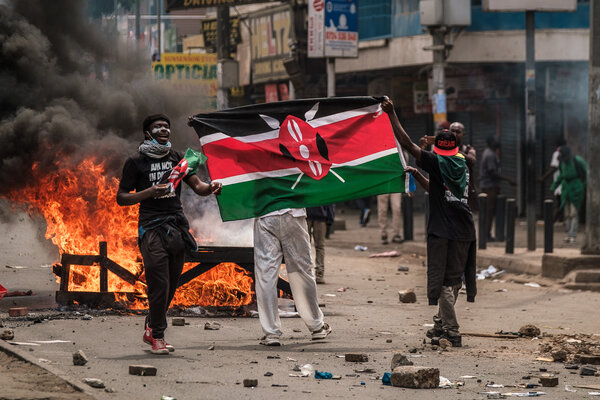
These critics argue that the broad-based government has, in effect, transformed Odinga from a radical reformer into an extension of the status quo. To them, the partnership with Ruto represents a capitulation to entrenched political forces, one that undermines the promise of genuine transformation and empowerment. The narrative among many Gen Z supporters is one of disillusionment—a sense that their hopes for a bold and unyielding fight against oppression have been betrayed.
Balancing Act: Political Realism vs. Ideological Purity
On the other hand, some analysts suggest that Odinga’s decision to form a broad-based government was a necessary, if imperfect, compromise. In the complex realm of Kenyan politics, building coalitions is often essential for achieving tangible results. Supporters of the move argue that by accepting government backing, Odinga positioned himself as a pragmatic leader capable of navigating Kenya’s intricate political landscape, even if it meant tempering some of his earlier, more uncompromising stances.
This debate encapsulates a broader tension within modern politics: the balance between ideological purity and political pragmatism. While the older electorate might appreciate the necessity of compromise in achieving political stability, the younger generation’s hunger for radical change remains unquenched, leading to a growing rift in perceptions of what leadership should embody.
Raila Odinga’s Loss at the AUC and Its Implications for Kenya and the African Union
Raila Odinga’s loss in the AUC Chairmanship election carries significant implications both regionally and domestically. On the African stage, the ascendancy of Mahamoud Ali Youssouf may signal a shift in the power dynamics within the AU. With Djibouti now poised to wield considerable influence, there could be a reorientation of the Union’s priorities and policies, potentially affecting everything from economic cooperation to security initiatives across the continent.
Getting strong supports from so many leaders on our continent : good omen pic.twitter.com/0iN6YVNTmF
— Mahmoud Ali youssouf (@ymahmoudali) January 11, 2025
Domestically, the outcome has sparked intense debate within Kenya. The government’s staunch support for Odinga’s candidacy is now under scrutiny, with critics arguing that it may have inadvertently alienated a crucial segment of the electorate—particularly the younger population. This generational discontent could have lasting repercussions on future political campaigns and electoral strategies in Kenya, as political leaders are forced to re-evaluate how they balance institutional alliances with the need to remain true to the ideals that resonate with the youth.
Raila Odinga’s loss of the AUC seat is nothing, in my opinion, his greatest loss is the trust of Kenyans.
— Dr. King’ori (Shaman) (@Dr_Kingori) February 15, 2025
Furthermore, the electoral setback raises questions about the efficacy of broad-based coalitions in achieving meaningful change. As Kenya grapples with the aftermath of this decision, both supporters and detractors of the coalition will be closely watching how the country navigates its internal divisions. The coming months are likely to witness a period of intense introspection within Kenyan politics, as leaders debate the best path forward in a rapidly evolving political environment.
Concluding Thoughts: A Moment of Reckoning
Raila Odinga’s defeat at the AUC Chairmanship election is more than just a loss of a political contest—it is a moment of reckoning for Kenyan politics. The event has exposed deep fissures within the nation’s political landscape, highlighting the complex interplay between government-backed pragmatism and the unyielding demands for transformative change from the younger generation.
For Raila Odinga, the loss may prompt a period of reflection on his political strategies and alliances. The fervent support he once enjoyed is now tempered by criticisms of compromised integrity and betrayal.
As Kenya moves forward, the challenge for its leaders will be to bridge these divides, ensuring that political alliances do not come at the expense of the foundational ideals of justice, equality, and genuine reform. Things have been unravelling in Kenya, however, with the government accused of undertaking abductions, torture, and extra-judicial killings of political dissidents.

The broader lesson from this episode is clear: in an era marked by rapid social change and heightened expectations from younger citizens, political pragmatism must be carefully balanced with the need to remain true to the causes that inspire hope and mobilize change. Whether Odinga can recalibrate his approach in the wake of this setback remains to be seen. However, one thing is certain—the political narrative in Kenya is evolving, and the voices of the new generation are playing an increasingly decisive role in shaping the future.
I clearly hear the plea of African youth across the continent : I am aware of your expectations and I will spare no effort once elected to be your flag bearer .
— Mahmoud Ali youssouf (@ymahmoudali) January 11, 2025
In the end, the defeat of a long-time political heavyweight like Raila Odinga at the AUC Chairmanship vote is not just a chapter in the story of African Union elections; it is a reflection of a broader global trend where the interplay between tradition and innovation, pragmatism and idealism, continues to redefine leadership in the modern era.
Be sure to also read the latest news on the political crisis in Kenya.
This article has been written with the help of A.I. for topic research and formulation.


